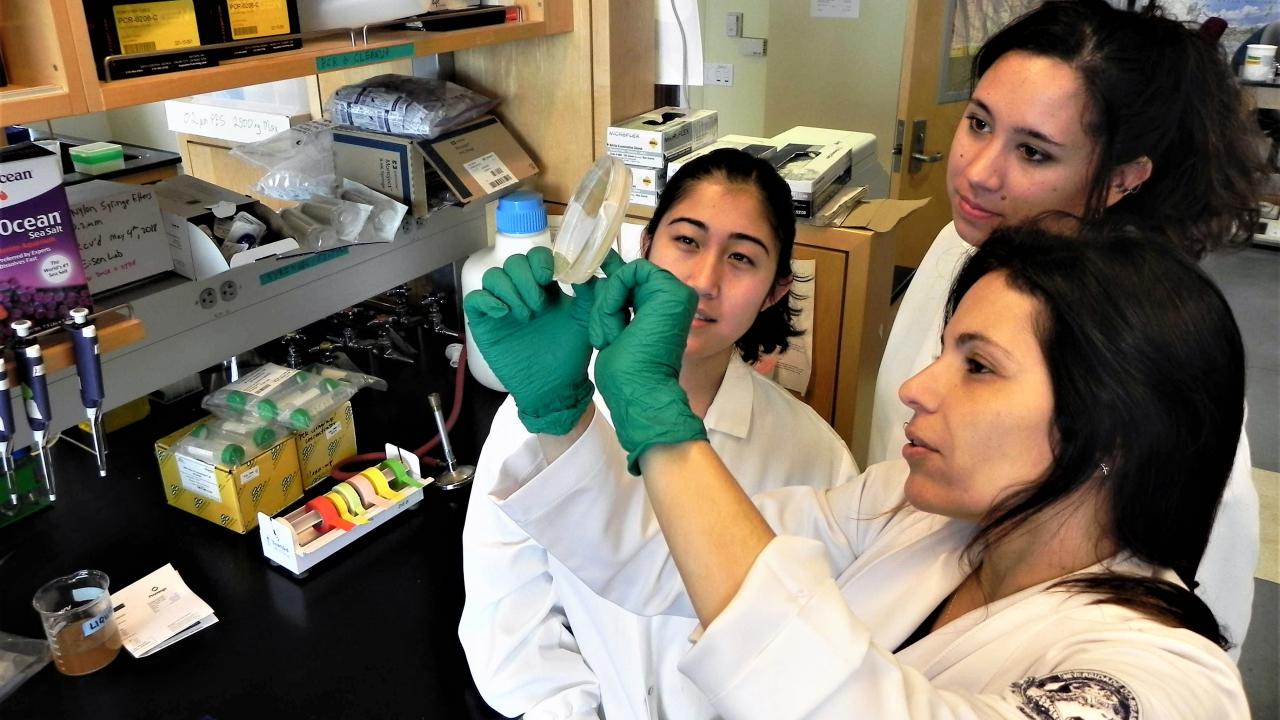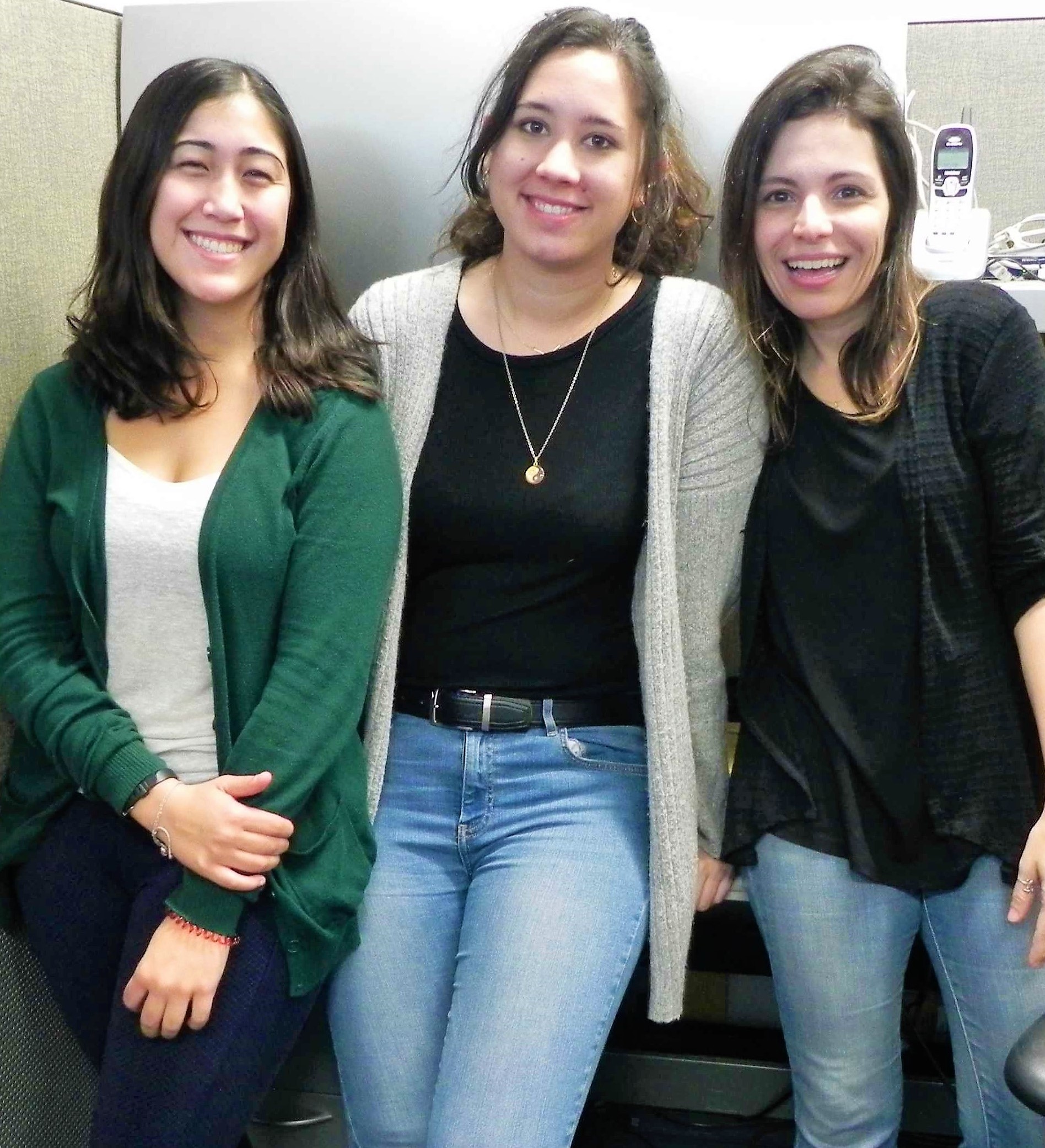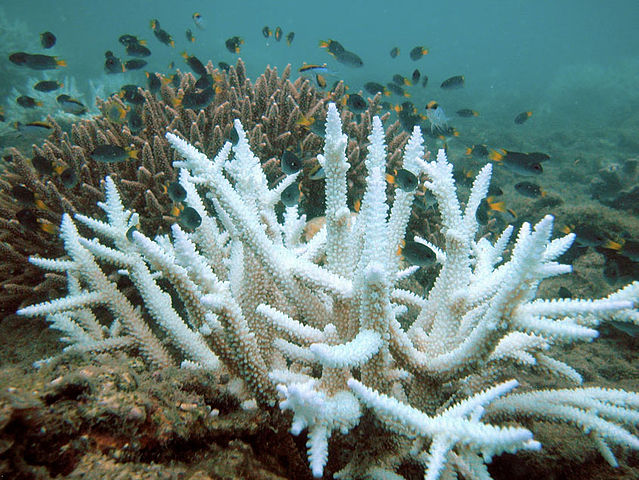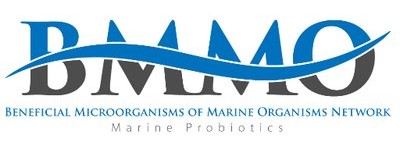
Coral Bleaching and Marine Probiotics: Raquel Peixoto, Ph.D.
By Jose Franco

Dr. Raquel Peixoto is a visiting associate professor from the Federal University of Rio de Janeiro and a research associate from the Rio de Janeiro Marine Aquarium (AquaRio) in Brazil. She also coordinates the Beneficial Microorganisms of Marine Organisms (BMMO) Network, together with Dr. Michael Sweet (University of Derby), which seeks to unify and facilitate studies on the manipulation of the microbiome associated with marine organisms. Dr. Peixoto is collaborating with Dr. Jonathan Eisen's lab at the Genome Center, focusing on improving coral health through microbiome manipulation and the use of coral probiotics.
Coral Bleaching
Shallow coral health is dependent on the symbiotic relationship between the coral and photosynthetic algae from the family Symbiodiniaceae. These algae are the main source of food and nutrients and are also what give corals their color. The algae live within the coral in exchange for providing the coral with a majority of its energy requirements through photosynthesis. But when a coral becomes stressed due to a change in environment (e.g., warmer temperatures), the algae are expelled and leave the coral without a food source. Consequently, the coral lose their color, which results in "bleaching," and, most importantly, the coral become more susceptible to disease.
Benefical Microorganisms for Corals (BMC)
Dr. Peixoto has laid the groundwork for understanding the mechanisms by which the coral microbiome supports coral health. In a 2017 article, Dr. Peixoto proposed the term “Beneficial Microorganisms for Corals (BMC),” which defines the symbionts that promote coral health and can be assembled as a consortium of microbes thought to be beneficial to the coral's health and resilience. This new concept could pave the way for future efforts to improve coral health and potentially restoration efforts.

BMC is analogous to the term and concept used in the agricultural industry “Plant Growth Promoting Rhizosphere (PGPR),” which describes the microorganisms within the rhizosphere that directly or indirectly promote plant growth and development. The paper further discussed the microbial-host relationships within the coral holobiont, along with their potential roles in maintaining coral health. Dr. Peixoto works to expand this concept of beneficial microorganisms not only to corals, but any other marine organism.
A more recent study published by Dr. Peixoto describes the first attempts to increase coral resistance to bleaching through microbiome manipulation, conducted with UC Davis collaborators Dr. Jonathan Eisen and Bionformatics Engineer Guillaume Jospin. Study results reveal the ability to partially mitigate the effects of coral bleaching by using the beneficial microorganisms consortium, as well as the ability to manipulate the microbiome in corals to minimize susceptibility to mortality within increasing environmental impacts — a novel approach to maintaining coral health into the future.

BMMO Network
Drs. Raquel Peixoto, Jonathan Eisen, and John Stachowicz are part of the BMMO (Beneficial Microorganisms of Marine Organisms) Network, which aims to bring together researchers from different countries who have both the passion and expertise to work on the development, improvement and application of probiotics in marine management. A deeper understanding of the symbiotic relationships between marine hosts and their associated microbiomes is also one of the key aims of the network members. The network provides a platform for researchers to share protocols, develop joint actions to facilitate the study of symbiotic relationships and the use of marine probiotics globally, and apply to joint programs and projects. In 2018, Dr. Peixoto was the Principal Investigator for a project submitted to the Great Barrier Reef Foundation's "Out of the Blue Box Reef Innovation Challenge," in collaboration with Dr. Eisen and other BMMO members. The project won the People's Choice Award due to high popularity and the team was awarded $110,000 for their research.
Dr. Peixoto believes that marine probiotics have many applications not only for restoration approaches, but may also serve as a replacement for the use of antibiotics. “The use of antibiotics in aquaculture has its limitations and can instead be replaced with probiotics, which can protect the organisms against disease and even promote health," she noted. "BMC can be a more sustainable and environmentally friendly solution. Much like how we use yogurt for probiotics with people, we can also use beneficial microogranisms for marine organisms without negatively impacting its surrounding environment," she added.
Biosphere 2 Ocean
The Biosphere 2 Ocean is the largest artificial ocean in the world and is a marine mesocosm used to simulate coral reef experiments. This unique mesocosm provides researchers the ability to test radical intervention methods in a controlled environment before moving to the ocean's coral reefs. Dr. Peixoto is a member of the scientific advisory committee for the Biosphere 2 Ocean, where they are planning to build a resilient reef from scratch in order to monitor all biogeochemical shifts and patterns throughout its development. They will also test radical interventions, as recently highlighted by the National Academies of Science, probiotics among them.
Contact
- Raquel Peixoto, Visiting Professor, Genome Center, rspeixoto@ucdavis.edu
- Jose Franco, Microbiome Special Research Program, jlfranco@ucdavis.edu
Comments